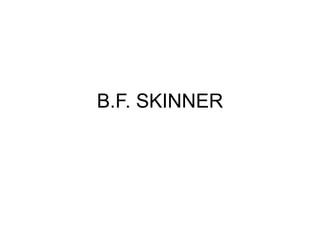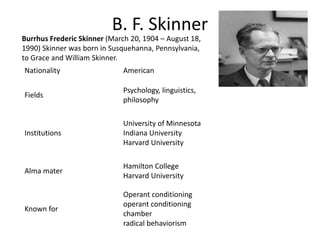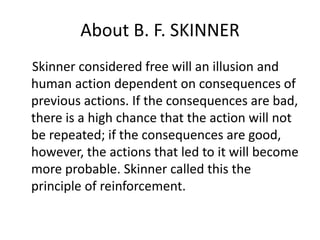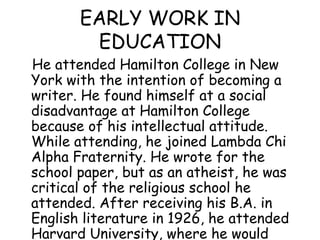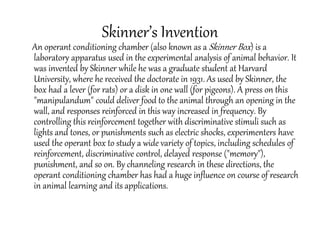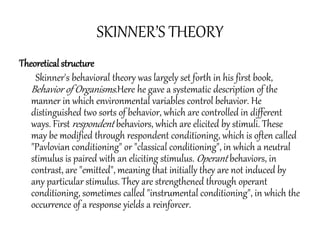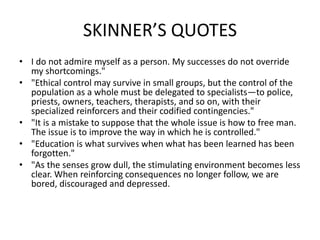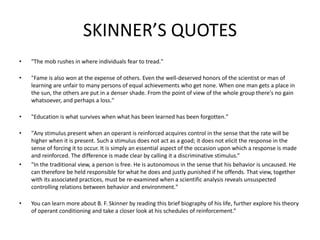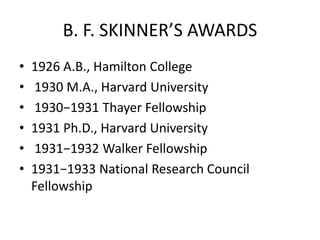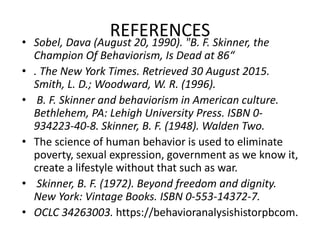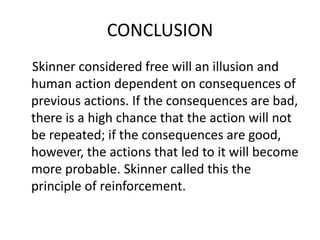B.F. Skinner was an American psychologist known for his theory of operant conditioning. He invented the operant conditioning chamber, also known as a Skinner Box, to study animal behavior reinforcement through consequences. Skinner believed human behavior is controlled by environmental influences and consequences rather than free will. He developed his theories of operant and respondent conditioning to explain how behavior is learned and changed through positive and negative reinforcement.
